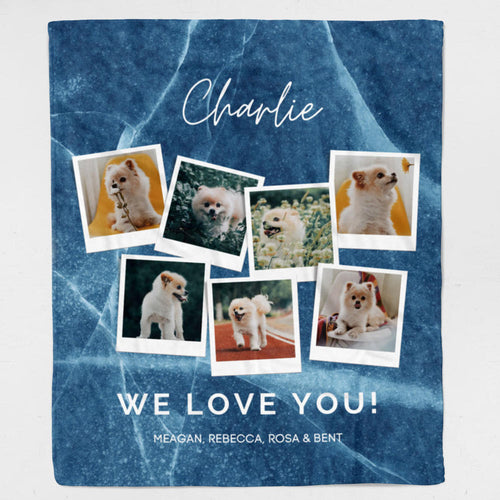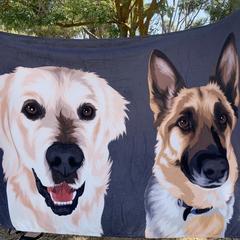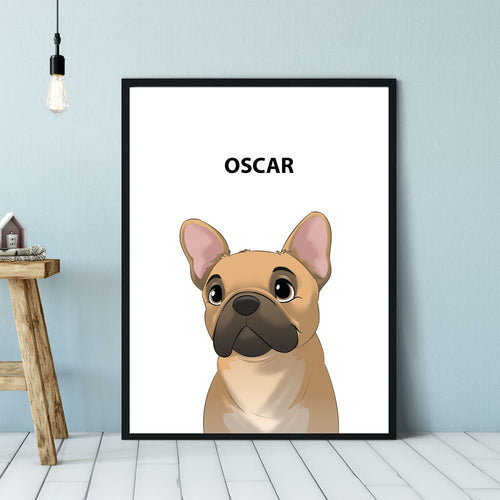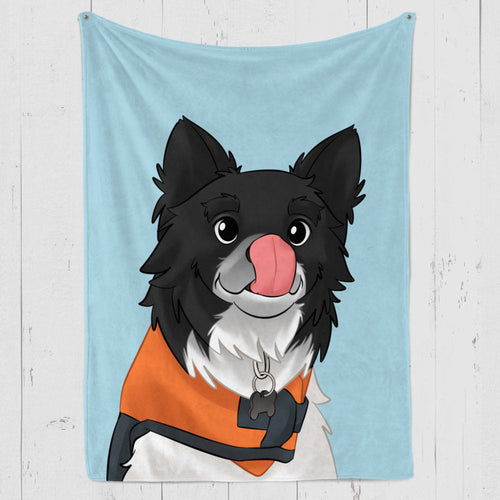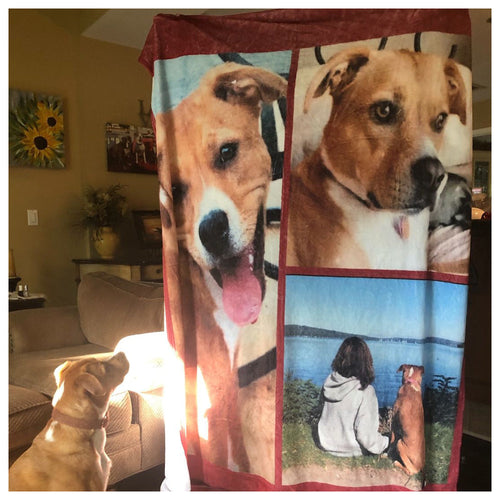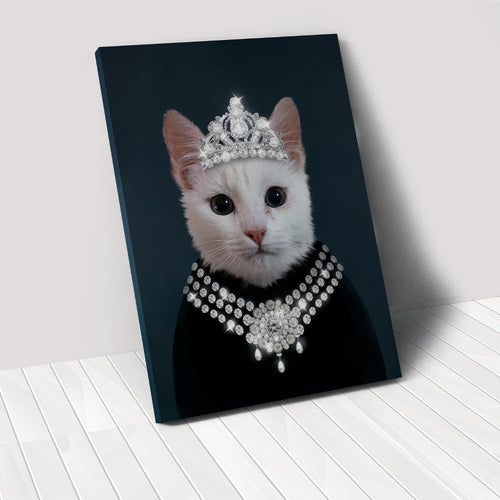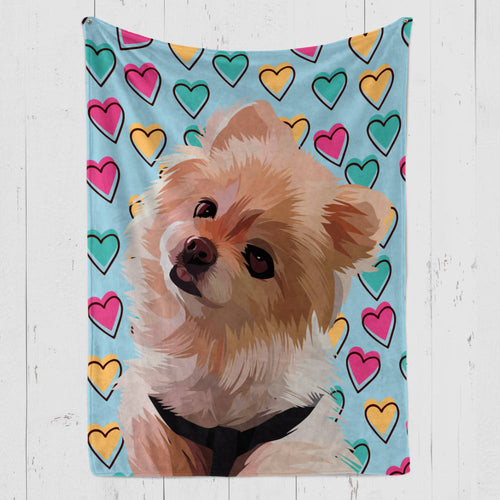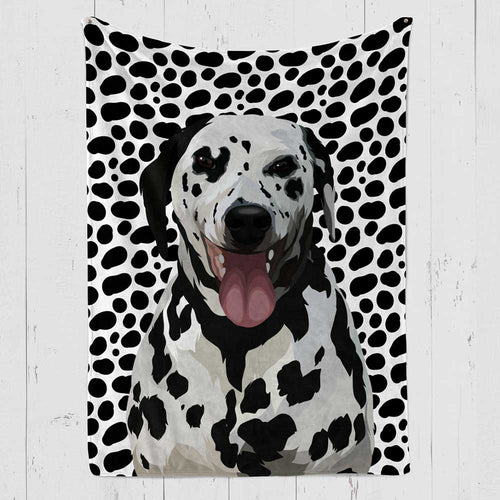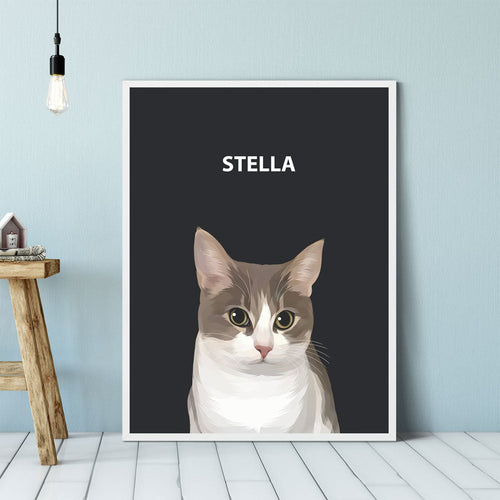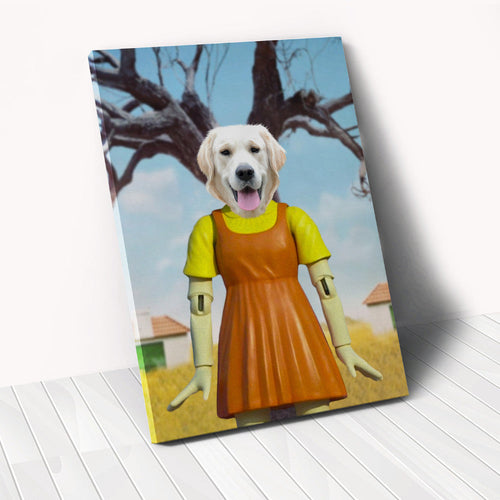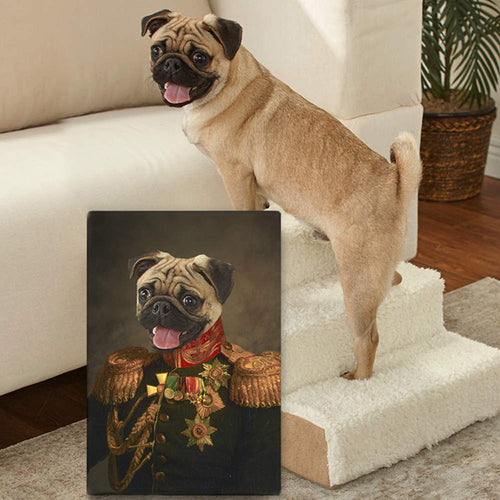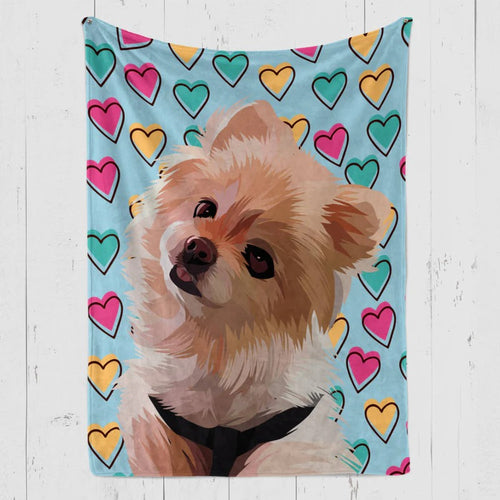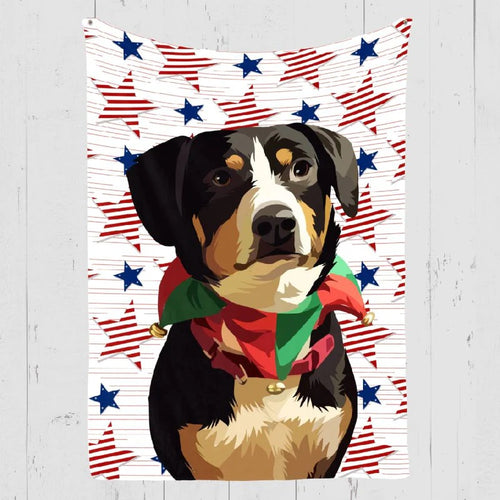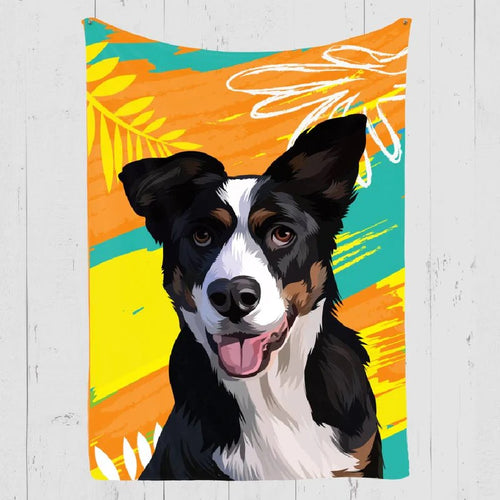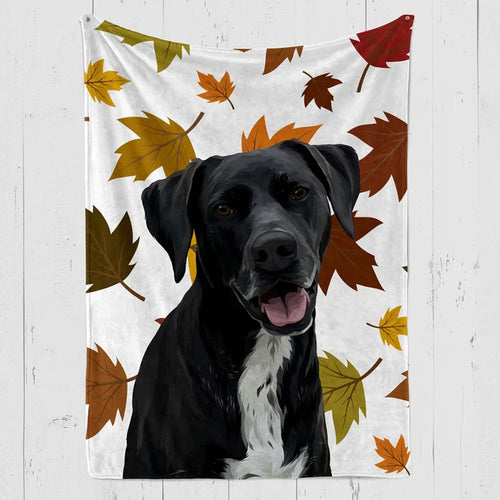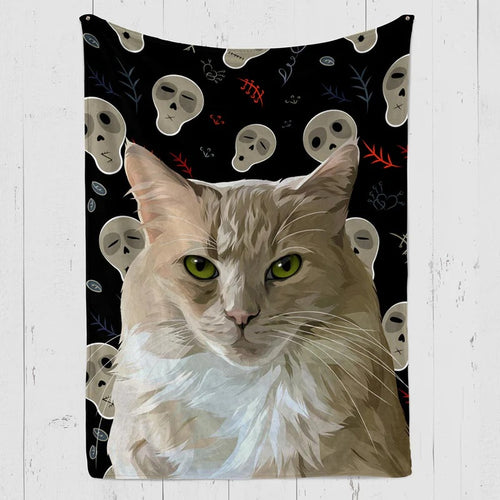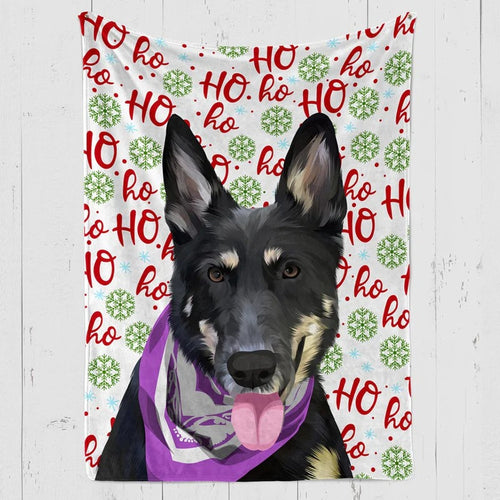
Why does my dog nibble on me? That is a question that pet owners have been asking themselves for a very, very long time. There are actually a tonne of potential causes for this to be happening to your dog, and some of them may surprise you. While a dog nibbling occasionally could be an indication of something wrong, most of the time, it's nothing to worry about unless this undesired conduct becomes a little unpleasant.
These are just a few possibilities for why your dog might start nibbling on you (or your clothing) and how to recognize when a few harmless nibbles might develop into aggressive behavior.
How To Differentiate Between Nibbling and Biting?
It is crucial to understand the distinction between nibbling and biting. If your dog's teeth just barely make contact with your skin without biting down, that’s called nibbling. Experts characterize this as minimal teeth pressure which can involve just the dog’s front teeth or the entire mouth. When a dog nibbles on you, it is usually not accompanied with aggression. However, the signs can vary from dog to dog. In contrast, when a dog bites you, it is accompanied with aggression, and can leave you wounded and bleeding. In such cases, you must seek professional guidance to curb the problematic behavior.
What Are the Main Reasons Behind My Dog’s Nibbling On Me?
Keep your sleeve out of your dog's mouth long enough to read the rest of this!
1. To Stimulate Milk
According to certain scientific theories, nursing puppies at their mother's teat stimulates the creation of milk. Dogs' instinctual behavior, which is a crucial component of their early growth, subsequently develops into a display of affection.
2. To Express Emotion
Hugging is a human gesture that resembles the dog's gentle nibbling motion with its front teeth. A dog will often cobble at you, another person, or another dog when it feels safe doing so. Even mother dogs cob at their pups in the manner of a soft kiss.
So the next time your dog gives you a gentle nibble before beginning to quickly and rhythmically bite you, don't be alarmed. When they are content and sleeping next to you, dogs frequently exhibit this behavior. There is no need to be concerned because even when they do this with other animals, it is a sign of a good bond.
3. Breed-Typical Conduct
For hundreds of years, some dogs have been bred to use their mouths for particular labor and athletic purposes. This suggests that your preference for fanning your fingertips may be a natural habit.
4. Displaying signals to Play With You
Dogs enjoy playing. Play is an important aspect of dogs' lives at all stages, from pups to adults.
Dogs typically start by playful nipping at each other when they want to play. A symptom of socializing is this. The same might be true if your dog bites you. They might only want your attention or want to play with you.
5. To grab your attention
You might have felt your dog gently chew on your hand as you were relaxing on the couch and watching a movie or reading through your phone. Your dog is merely requesting your attention by giving you this subtle gesture.
Therefore, gently your dog cobbing for your attention is less problematic than biting while playing. Simply respond to their cries for attention by giving them a good ear scratch or a light body rub.
6. To scratch an itch on their body
Your dog may use its front teeth to gnaw at an itchy spot on their body to scratch it. This kind of cobbing is distinct from the customary light nibbling and may occasionally be a little stronger. They are doing this because they are attempting to scratch their itch.
When a dog bites at their own body, you should exercise extreme caution since it could mean that they are trying to get rid of a parasite (like a flea) or anything that has become lodged in its fur. You can easily take out the thing if it is in their hair. However, if they continue to often cob at their bodies, it can mean that your dog needs to be dewormed.
7. To Relieve Stress and Anxiety
Dogs can ease their tensions in a similar manner as some people who are upset or anxious will bite their lower lip. Typically, it is a primordial response that stems from the infants' innate behavior of softly nibbling at their mother's breasts. They will do it to decompress since it is self-soothing and they find it relaxing.
When your dog occasionally nibbles on itself to ease stress and anxiety, there is no reason to be alarmed. But if they keep doing it, they might harm themselves and break their skin, leading to an infection or wound on their skin.
In addition, your dog might chew on something and harm it or its own teeth. If this is the case, you should find your dog some entertaining toys to keep him occupied.
What All Can Do When Your Dog Nibbles on You?
Here is a list of some common things that you might follow when your dog nibbles on you:
1. Know Your Dog's Triggers
Watch your dog discover its unique triggers. How does mouth contact appear? What time does the behavior happen? How frequently? You can move on to the next step by responding to these queries.
When a certain guest arrives, for instance, you might want to put your dog in a separate room if they tend to target that person. If your dog becomes agitated during playtime, you might need to maintain control or even stop it.
2. Redirect to Desired Behaviors
To prevent the habit through early redirection, know your dog's body language. Teach desired behaviors such as "grab and hold a toy," “stay back,” or "nose to hand" that is incompatible with biting. When that happens, you can give your pet the right cue to prevent the activity from starting. Having treats and toys readily available in trigger locations can also aid in diverting your pet's attention. Also, toys, incentives, and cues can all be used to interrupt the habit once it has started.
3. Ensure Your Dog’s Physical and Mental Stimulation
Making sure your dog has enough daily physical and mental activity is another protective measure. Activities that exercise your dog's body and mind include walks, sniff walks, treat hunts indoors or outside, puzzle feeder toys, play, and training. Contact your veterinary team or a qualified positive-reinforcement trainer if you have any questions or need assistance with redirection ideas. Your fingertips will appreciate it.
How Do I Gently Prevent My Pup From Nibbling?

Even if certain nibbles are occasionally incredibly adorable, they could start to annoy you. There are a few things you may do to try and halt your puppy's behavior if it has evolved from being mildly amusing to, well, a little aggravating.
If your dog likes to chew on your finger or other objects, try replacing them with a toy. Then, when they do, lavish them with praise. Encourage them to gnaw on the item. This will teach them to just gnaw on toys and not on their own body parts. You could also make an effort to disregard the behavior.
Whatever you do, resist the urge to become so irate that you decide to punish your dog. Never, ever strike them and never, ever yell at them. Unfortunately, this could lead to an incident of playfulness developing into aggression.
Takeaway
Dogs may nip for a variety of reasons. They may nibble to gain your attention if they believe that you are playing with them or going for a walk. Dogs might get bored at times and request entertainment from you just like young children do. Sometimes they nibble on your clothing or skin as they investigate your aroma and taste.
If your puppy is an extreme nibbler, it will probably outgrow that with your instruction as their master to some level! As long as the dog isn't being hurtful or violent, it is a sweet, playful interaction demonstrating their affection for you or their need for you. Sharing this post with another dog and its owner will assist them now that you are aware of the doggy nibbling dilemma. Who knows, maybe it will make their dog more understandable and the message will go through!
Frequently Asked Questions
Could my dog be mimicking behavior from puppyhood?
It is possible. Puppy nibbling is a play and socialization-related habit. As they age, some dogs may keep nibbling since the behavior was reinforced while they were young.
Are there any particular breeds that nip more frequently than others?
Instead of being breed-specific, nibbling activity might vary across individual dogs. However, because it can be a component of some breeds' natural behavior, especially those with herding characteristics, nipping tendencies may be more pronounced in some types.
What if my dog's nibbling becomes aggressive or painful?
Prioritize your safety if your dog starts biting in an uncomfortable or violent manner. To prevent additional harm, step away from the situation as soon as possible. To address the aggression and create a personalized behavior modification plan for your dog, speak with a qualified dog trainer or behaviorist.
Can nibbling be a sign of a larger behavior issue?
Simply nibbling does not always indicate a wider behavioral problem. However, if the biting is painful and violent or is coupled with other worrying actions, it may point to a deeper behavioral problem. To identify the underlying cause and treat any relevant behavioral issues, it's critical to evaluate the whole context and seek professional advice.
Reference links:
- https://ultimatepetnutrition.com/why-does-my-dog-nibble-on-me/
- https://www.dailypaws.com/dogs-puppies/dog-behavior/common-dog-behaviors/why-do-dogs-nibble-on-you
- https://www.prouddogmom.com/dog-nibble/
- https://blog.tryfi.com/what-is-cobbing/
Recommended Articles :
Latest Review on Woof Blankets
To have such a masterpiece by my side every day is a gift for me and my memories with Rex. Thank you WoofBlankets for such an opportunity to recreate his image on a blanket.Lara o’ Miguel US, California

COLLECTION WORTH EVERY PENNY
BEST SELLERS
-
Woofy Single Color Custom Pet Blanket
![Woofy Single Custom Pet Blanket – Woof Blanket]()
- -41%
BlanketsSHOP NOW- Regular price
- from $64.95
- Sale price
- from $64.95
- Regular price
-
$109.95 - Unit price
- per
Sold out -
Exclusive Christmas Custom Pet Blanket
![Exclusive Custom Pet Blanket]()
- -39%
BlanketsSHOP NOW- Regular price
- from $69.95
- Sale price
- from $69.95
- Regular price
-
$114.95 - Unit price
- per
Sold out -
Christmas Custom Pet Blanket
![Christmas Custom Pet Blanket - Custom Dog Blankets]()
- -40%
BlanketsSHOP NOW- Regular price
- from $69.95
- Sale price
- from $69.95
- Regular price
-
$115.95 - Unit price
- per
Sold out -
Watercolor Pet Portraits
![]() SHOP NOW
SHOP NOW- Regular price
- from $59.95
- Sale price
- from $59.95
- Regular price
-
- Unit price
- per
Sold out -
Woofy Christmas Custom Dog Blanket
![Woofy Christmas Custom Dog Blanket]()
- -39%
BlanketsSHOP NOW- Regular price
- from $69.95
- Sale price
- from $69.95
- Regular price
-
$114.95 - Unit price
- per
Sold out -
Modern Pet Owner Portrait
![]()
- -32%
CanvasSHOP NOW- Regular price
- from $84.95
- Sale price
- from $84.95
- Regular price
-
$124.95 - Unit price
- per
Sold out -
Woof Splash Custom Pet Blanket
![Woof Splash Custom Pet Blanket]()
- -39%
BlanketsSHOP NOW- Regular price
- from $69.95
- Sale price
- from $69.95
- Regular price
-
$114.95 - Unit price
- per
Sold out -
The Admiral - Custom Pet Portrait
![The Admiral - Custom Pet Portrait Online]()
- NEW
- -25%
CanvasSHOP NOW- Regular price
- from $59.95
- Sale price
- from $59.95
- Regular price
-
$79.95 - Unit price
- per
Sold out -
Wings of Loyalty - Custom Pet Portrait
![]()
- NEW
CanvasSHOP NOW- Regular price
- from $59.95
- Sale price
- from $59.95
- Regular price
-
- Unit price
- per
Sold out -
Pet Memorial Custom Photo Collage Blanket
![Personalized pet memorial quilt with photos]()
- -41%
BlanketsSHOP NOW- Regular price
- from $64.95
- Sale price
- from $64.95
- Regular price
-
$109.95 - Unit price
- per
Sold out -
Celestial Paws - Custom Pet Portrait
![]() CanvasSHOP NOW
CanvasSHOP NOW- Regular price
- from $59.95
- Sale price
- from $59.95
- Regular price
-
- Unit price
- per
Sold out -
The Loyal Soul - Custom Pet Portrait
![]()
- NEW
SHOP NOW- Regular price
- from $59.95
- Sale price
- from $59.95
- Regular price
-
- Unit price
- per
Sold out -
Cartoonized Pet Portraits (New)
![Cartoonized Pet Custom Portraits Online]()
- -36%
SHOP NOW- Regular price
- from $59.95
- Sale price
- from $59.95
- Regular price
-
$93.95 - Unit price
- per
Sold out -
The French Sailor - Custom Pet Portrait
![]()
- -25%
CanvasSHOP NOW- Regular price
- from $59.95
- Sale price
- from $59.95
- Regular price
-
$79.95 - Unit price
- per
Sold out -
The Policeman - Custom Pet Portrait
![]()
- NEW
- -25%
CanvasSHOP NOW- Regular price
- from $59.95
- Sale price
- from $59.95
- Regular price
-
$79.95 - Unit price
- per
Sold out -
The General - Custom Pet Portrait
![]()
- NEW
- -25%
CanvasSHOP NOW- Regular price
- from $59.95
- Sale price
- from $59.95
- Regular price
-
$79.95 - Unit price
- per
Sold out -
Woof Love Custom Pet Blanket
![Woof Love Custom Pet Blanket]()
- -39%
BlanketsSHOP NOW- Regular price
- from $69.95
- Sale price
- from $69.95
- Regular price
-
$114.95 - Unit price
- per
Sold out -
Summer Time Custom Pet Blanket
![Summer Time Custom Pet Blanket]()
- -39%
BlanketsSHOP NOW- Regular price
- from $69.95
- Sale price
- from $69.95
- Regular price
-
$114.95 - Unit price
- per
Sold out -
The Ambassador - Custom Pet Portrait
![The Ambassador - Custom Pet Portrait Online]()
- NEW
- -25%
CanvasSHOP NOW- Regular price
- from $59.95
- Sale price
- from $59.95
- Regular price
-
$79.95 - Unit price
- per
Sold out -
Fall In Love Custom Pet Blanket
![Fall In Love Custom Dog Blanket]()
- NEW
- -39%
BlanketsSHOP NOW- Regular price
- from $69.95
- Sale price
- from $69.95
- Regular price
-
$114.95 - Unit price
- per
Sold out -
The Classy Lady - Custom Pet Portrait
![The Classy Lady]()
- NEW
- -25%
CanvasSHOP NOW- Regular price
- from $59.95
- Sale price
- from $59.95
- Regular price
-
$79.95 - Unit price
- per
Sold out -
The Duke - Custom Pet Portrait
![The Duke - Custom Pet Portrait]()
- NEW
- -25%
CanvasSHOP NOW- Regular price
- from $59.95
- Sale price
- from $59.95
- Regular price
-
$79.95 - Unit price
- per
Sold out -
Dog In Suit- Custom Pet Portrait
![Dash Dog In Suit- Custom Pet Portrait Online]()
- NEW
- -25%
CanvasSHOP NOW- Regular price
- from $59.95
- Sale price
- from $59.95
- Regular price
-
$79.95 - Unit price
- per
Sold out -
The Princess - Custom Pet Portrait
![]()
- NEW
- -25%
CanvasSHOP NOW- Regular price
- from $59.95
- Sale price
- from $59.95
- Regular price
-
$79.95 - Unit price
- per
Sold out -
Modern Pet Portrait with One Mug
![Modern Pet Portrait with One Mug]()
- -25%
Print MaterialSHOP NOW- Regular price
- from $99.95
- Sale price
- from $99.95
- Regular price
-
$133.95 - Unit price
- per
Sold out -
The Aristocrat - Custom Pet Portrait
![The Aristocrat - Custom Pet Portrait At Best Price]()
- NEW
- -25%
CanvasSHOP NOW- Regular price
- from $59.95
- Sale price
- from $59.95
- Regular price
-
$79.95 - Unit price
- per
Sold out -
Single Color Custom Blanket with 1 Mug
![Single Color Custom Blanket with 1 Mug]() BlanketsSHOP NOW
BlanketsSHOP NOW- Regular price
- from $99.95
- Sale price
- from $99.95
- Regular price
-
- Unit price
- per
Sold out -
Single Color Custom Blanket with 2 Pillows
![Single Color Custom Pet Blanket with 2 Pillows]()
- -21%
BlanketsSHOP NOW- Regular price
- from $99.95
- Sale price
- from $99.95
- Regular price
-
$125.95 - Unit price
- per
Sold out -
The Dog in Suit Custom Pet Mug
![]()
- -20%
MugsSHOP NOW- Regular price
- $39.95
- Sale price
- $39.95
- Regular price
-
$49.95 - Unit price
- per
Sold out -
Angel Custom Pet Mug
![]()
- -20%
MugsSHOP NOW- Regular price
- $39.95
- Sale price
- $39.95
- Regular price
-
$49.95 - Unit price
- per
Sold out -
This Human Belongs To - Custom Pet Mug
![]()
- NEW
- -20%
MugsSHOP NOW- Regular price
- $39.95
- Sale price
- $39.95
- Regular price
-
$49.95 - Unit price
- per
Sold out -
It's Not Dog Hair Custom Pet Mug
![]()
- NEW
- -20%
MugsSHOP NOW- Regular price
- $39.95
- Sale price
- $39.95
- Regular price
-
$49.95 - Unit price
- per
Sold out -
My Dog Is My Valentine Custom Pet Mug
![]()
- NEW
- -20%
MugsSHOP NOW- Regular price
- $39.95
- Sale price
- $39.95
- Regular price
-
$49.95 - Unit price
- per
Sold out -
3 Photos With Message Custom Pet Mug
![]()
- NEW
- -20%
MugsSHOP NOW- Regular price
- $39.95
- Sale price
- $39.95
- Regular price
-
$49.95 - Unit price
- per
Sold out -
My Valentine Has Four Legs- Personalized Mugs
![]()
- NEW
- -20%
MugsSHOP NOW- Regular price
- $39.95
- Sale price
- $39.95
- Regular price
-
$49.95 - Unit price
- per
Sold out -
Dog Mamma Custom Pet Coffee Mug
![]()
- -20%
MugsSHOP NOW- Regular price
- $39.95
- Sale price
- $39.95
- Regular price
-
$49.95 - Unit price
- per
Sold out -
Uncle Sam - Custom Pet Portrait
![]()
- NEW
- -25%
CanvasSHOP NOW- Regular price
- from $59.95
- Sale price
- from $59.95
- Regular price
-
$79.95 - Unit price
- per
Sold out -
The Revolutionary Emperor - Custom Pet Portrait
![]()
- NEW
- -25%
CanvasSHOP NOW- Regular price
- from $59.95
- Sale price
- from $59.95
- Regular price
-
$79.95 - Unit price
- per
Sold out -
The Princess Paws - Custom Pet Portrait
![]()
- -25%
CanvasSHOP NOW- Regular price
- from $59.95
- Sale price
- from $59.95
- Regular price
-
$79.95 - Unit price
- per
Sold out -
The Dark Crusader Knight - Custom Pet Portrait
![]()
- -25%
CanvasSHOP NOW- Regular price
- from $59.95
- Sale price
- from $59.95
- Regular price
-
$79.95 - Unit price
- per
Sold out
